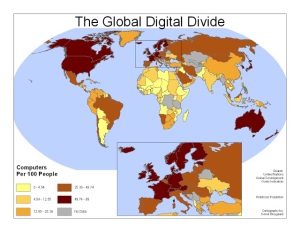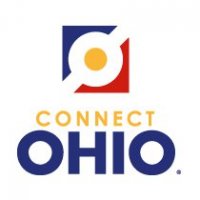
It was very disheartening to learn about countries where even children’s literature is a precious commodity; countries where crude information centers had been established with one telephone, one fax and five computers for people from numerous villages to utilize. What a shame that the governments of these countries are either too corrupt, or too poor, or just plain unwilling keep their citizens informed on local and global issues.
I find this appalling, but what I find even more grotesque is the fact that nations rich in information and access (i.e. the United States) has inequalities in information access to the extent that is isolates entire regions of the country. I live in an area designated as Appalachia (technically the Edge of Appalachia), where millions are under served in many capacities from education to healthcare to information access.
In 2011 the Tennessee Libraries conducted a discussion in regards to inequalities in access to high speed broadband connections in rural and suburban areas and how public libraries could play a more active role in advocating for their patrons to secure wider broadband access in all regions in Tennessee so that people could more fully participate in socially and economically in society. I provided a link so that you could peruse this document for yourself, but my point being that in 2011 in a state that is part of the United States of America is having a discussion on the lack of broadband access to a major population in their region is just repugnant. We’re not talking about getting these people on Facebook so they can play Farmville, we’re talking about getting these people connected so they can search for jobs, further their education, explore the world, see that there is something beyond the next hill.
world, see that there is something beyond the next hill.
Please don’t think that I’m stereotyping the people in Tennessee, because this is happening in Ohio, in my community. I’m very fortunate to be able to access and afford broadband connection at my home; however, I know many people who do not. In fact, the lack of broadband access was so deficient an initiative called ConnectOhio began in 2008 to provide training, offer more affordable connection options, and promote its use to help make Ohio competitive in the “connected global economy of the  twenty first century” through programs such as Every Citizen Online, Connect Appalachia Broadband Initiative, and Digital Works.
twenty first century” through programs such as Every Citizen Online, Connect Appalachia Broadband Initiative, and Digital Works.
Hopefully, by organizations working cooperatively, sufficient access to information will be available to all people all over the world. I know that I certainly will no longer fail to appreciate being able to pick up a newspaper, read a book, browse the Internet, or search a database again. I’m a lucky gal.